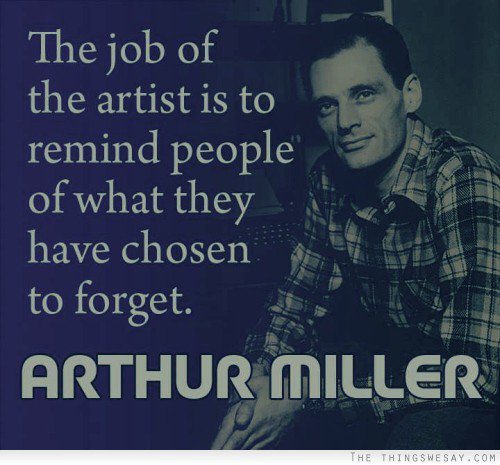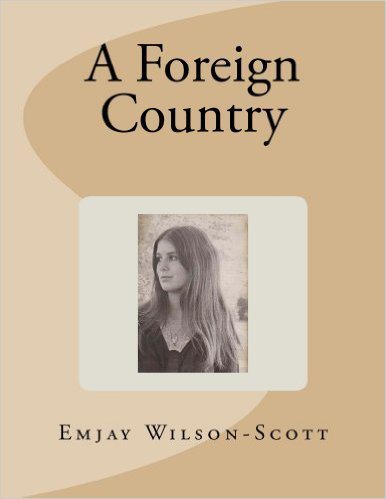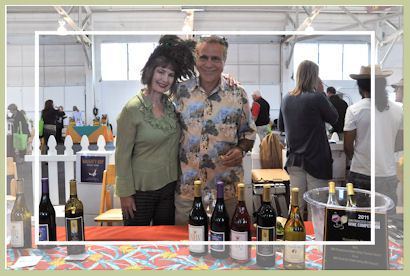Terena Scott's Blog, page 14
October 26, 2015
Learning to sit with pain – meditation with Rev. Zenju Earthlyn Manuel
I am sitting on my knees in a small room with several other women, silently breathing. Incense makes me want to sneeze, but it is also soothing. I close my eyes and concentrate on my breath. Pushing out my abdomen, I fill my lungs full, then push the air out until my lungs are desperate for air. Breathing in, I feel the warmth of oxygen. Like waves on the shore, air flows in and out of my body, reminding me I am alive.
I haven’t felt alive in a long time. That is why I came to practice zazen with Rev. Zenju Earthlyn Manuel. I heard her speak on a podcast over a year ago and there was something about her voice that made me look for her. She is an ordained Zen Buddhist Priest who teaches and lives in Oakland, California. We’d met one other time for a conversation and the advice she gave back then helped my life and practice. So when I heard she was doing a one day retreat, I had to go.
But when I was there, sitting quietly and breathing, I wondered why I’d driven so far. What was I hoping to learn spending an entire day meditating? My daughter was sick with a bad cold and I felt guilty leaving her, even though my husband is perfectly capable of caring for her. Plus, her caregiver was there. They didn’t need me. I could let go and … what?
After an hour, I was racked with fiery pain. Three years ago I’d been seriously injured and have dealt with neck and shoulder pain ever sense. I’ve learned to manage it, mostly by ignoring it. or “managing it”. I push myself too hard and regret it later. But the bills must be paid and my child must be cared for and that means I must shove my pain aside and get on with life. But through sitting and breathing, I reconnected to my very tired, very overstressed body, and felt the incredible pain I cary with me everywhere.
I wanted to cry. The pain stayed for what felt like hours, but was probably 30 minutes. Later I talked to Zenju about what had happened and she reminded me that part of meditation is listening to the body. If I’m in pain while sitting, stop. Forcing myself to sit with that pain doesn’t help at all. A strong will isn’t what the body needs. The body needs to be listened to and honored.
This is why I had come. Between my daughter’s care and my husband’s illness, I had been run to exhaustion. I shut down my body and ignored my needs just to cope. Survival mode was normality. Survival at the expense of my body had made me sick.
I returned to zazen and thankfully the pain wasn’t as strong. Instead of exhaustion, I felt strength. A wave of peace replaced fear. Despite my attempts to negate my body, she was still powerful. I promised to take better care of her. At least check in with her more often, and thank her for how much she does.
And thank you Zenju Earthlyn Manuel for your guidance and wisdom.
I encourage everyone to contact her and visit the Still Breathing Meditation Center. Also, read her books.


October 21, 2015
Fall Equinox
Despite the 90 degree weather, dusty, dead grass, drooping trees and dry creeks, it is Fall. The Fall Equinox to be exact. Don’t give up hope, dear Northern California. Rainy sweater weather will be here soon. We’ll be stomping in puddles just like SoCal soon.
Well, hopefully not as muddy as SoCal. Yikes.
Happy Equinox everyone.

image by Benedict Augustine via Flicker https://c2.staticflickr.com/6/5248/5267946320_2b8bbe5b32.jpg


October 17, 2015
Happy 100th Birthday Arthur Miller
Today is the 100th anniversary of the birth of Arthur Miller, playwright and activist. He fought against the Anti-communist witch hunts of the 1950’s by refusing to testify against his fellow artists and continued to fight injustice throughout his life. His play, “The Crucible” was inspired by his battle with Congress and his conviction of obstructing justice in 1957, a conviction overturned the following year.

Arthur Miller is one of the greatest American artists of all time. His plays revealed the inner life of ordinary people hunting the American dream. “Death of a Salesman” does this beautifully. If you haven’t read this play, do so.
Or listen to a live recording. What better way to celebrate the birthday of a genius writer than by celebrating his greatest work?



October 13, 2015
No time for social media because I’m writing
I hear it all the time: to sell books writers must be online marketing themselves. We need blogs updated four times a week. Active Twitter accounts and Facebook pages. Pinterest clip boards filled with images of scenery from our books. And now Instagram because people under 40 want to see us writing, not just read our Tweets.
How exactly are we supposed to get any writing done?
If I spend all that time looking for interesting things to post on my “page”, when will I finish writing a page in my book?
I’m sorry, but my life is not so interesting I think I should fill up the net with images of my toenails or what I ate for dinner. No one’s life is. But we writers will make things up to have something to share online. If only I could come up with that one clever Tweet that goes viral and suddenly I’m a star on line for a day. That one clever comment everyone will repost. My blog will get a bump and I’ll sell more books. It’s like winning the lottery.
If I spend creative energy thinking up funny sayings or hunting for inspirational quotes (which I do, I hate to say) then that is creative energy not spent writing.
Where is the balance? How do we write and still find someone to read it. Writing for yourself is no fun. Writing for thousands is thrilling. Or so I hear. Maybe if people like what I’ve written here in this blog they’ll share it and my blog will be featured all over Facebook. It’s worth a try.
Time to work on my book.


September 16, 2015
Interview with the Memoir: A Foreign Country, by Emjay Wilson-Scott

For my ongoing series of interviews with memoir writers, I spoke with Emjay Wilson-Scott, writer, artist and wine maker. Her book, A Foreign Country, shares her adventures in Sweden and Europe when she was a hippo,exchange student in the 1970’s/
Emjay has an MFA in Video Art from the SF Art Institute and a Masters in Scandinavian Language and Literature from U.C.Berkeley. Her poetry has been published in periodicals in Sweden and the United States. She and her husband own a small vineyard in Potter Valley, California, where they grow and bottle award winning Pinot Noir. Click the link to Naughty Boy Vineyards for more information.
Why did you pick this particular moment in your life to write about?
Despite my dyslexia, I have always felt a need to write, I wrote my first poems at seven (that I am aware of) and I wrote a children’s book as a child. I have written and published poetry all of my life, read poetry in San Francisco, and worked in Performance Poetry. I entered the Art Institute in order to start working with Video and poetry in the 80’s. I have some work in the Museum of Modern Art and had a show at the Mill Valley Film Festival.
After living in Europe, I felt a need to chronicle events in my life in order to understand them. I tried many times but never really completed a book. My Brother was killed in a car accident in 2001. It made me realize how little time we have. I decided to seriously start writing at that time. I actually took him with me to Sweden in the Character of Fred. He is the only semi-fictitious character in the book, but represents the American side of me that I attempted to hide.
What was the hardest part of writing this book?
I was not very computer literate at the time and had a great deal of trouble with spell-check and Swedish words. I met with two other writers, but would only write and send them without reviewing as it was emotionally draining to write my history. They were amazingly patient with my messy manuscript.
Place is very strong in your book. You really feel the landscape and cultural difference. How did you achieve that?
I have a very good memory, which is sometimes a curse. Because it was such a milestone in my life, I was able to sit and remember and write. The most difficult part was actually sitting down to do it and rewriting.
You self-published. Did you consider a traditional route?
I submitted it to one publishing house and was rejected. It sat for another couple years. Like most of us, I fear rejection. I then figured since I had gone to all of the trouble to write it, I would like to share it with friends. I do not feel it is a great work of art, but I like having on record a time that is lost forever.
Do you plan to write another book?
I’m writing a children’s book right now.



September 4, 2015
People with Disabilities vs. Caregivers. No one wins.

image from http://www.cuhw.org/2013/12/first-look-shasta-ihss-contract/
On August 21, 2015 a Federal Appeals Court reversed a Lower Court ruling regarding overtime pay for Home Health Care Workers. In the ruling, the court ended the exemption of home care workers from overtime pay. The long term caregivers union is rejoicing. Advocates for people with disabilities are angry. The fight isn’t over.
People with disabilities are concerned that they will lose caregiver hours because agencies will stop paying the full hours people need to stay in their homes. Private pay employers won’t be able to afford their workers. Caregivers are angry because they are paid low wages but must work more than 8 hours a day. Caregivers are fighting for a livable wage and people with disabilities are fighting to live.
When people with disabilities are pitted against the people who care for them, who wins?
This battle reflects a deeper problem. People with disabilities are not considered viable members of society and therefor have no value. The people who care for them are primarily people of color and women, groups traditionally considered low status. The system of caring for people with disabilities is structured around “cost savings.” As long as it is shown that keeping people in their homes saves society money, then doing so is considered important. But what cost do you place on respect and dignity?
Caregivers work as nurses, housekeepers, drivers, secretaries and cooks. They often bathe, dress, and help toilet severely disabled people and are paid minimum wage. Despite the long hours, most caregivers are dedicated to their clients and feel that they are making a difference in the world.
People with disabilities rely on their caregivers to not only support their physical needs, but to also help them engage with the world and enjoy their lives. The threat that they may lose their supports if a pay increase is mandated is real. State budgets are strapped and agencies run with minimal staff. Where will the money come from? And for those who have to pay out of pocket for caregivers, will the changes force them to go into an institution simply because their insurance will pay for it?
I am my daughter’s caregiver. I also rely on other caregivers to help me keep my daughter in our home. I gladly work far more hours than I am paid, and I know other caregivers who do the same. Many of these workers are not family members, but they know if they didn’t donate hours their clients would suffer.
It’s time for caregivers and people with disabilities to stop fighting each other. People need to stay in their homes and workers need a livable wage. Rather than suing each other, it is time for both groups to unite and demand increased funding for programs that support the disabled. We need to examine our society and ask why we are so willing to throw people away simply because they can’t care for themselves.


August 26, 2015
My daughter is back in school, so why am I not writing?
Writing is like exercise; you can have the desire to run a marathon or lift weights, but actually putting on your shoes and working out takes more than desire. You have to force yourself to go to the gym. Force yourself to sit in that chair with your laptop open and fingers hovering over the keyboard. It’s hard work. You have to build stamina and strength.
After a summer of entertaining a child, all I can focus on is “Animaniacs” reruns.
But my book is calling. I have a pile of notes and a complete outline. My plan is laid out. Now I just have to block out an hour a day and build up my marathon writing stamina. In time I’ll be humming through three hours of typing before my butt falls asleep.
Today, I feel like a jogger on that first, painful day.
Ugh.


August 21, 2015
One special needs family reaching out to another
There are a thousand sleepless nights to get through when your child is medically fragile. Waiting for answers. Waiting for change. I pick up a book I’m too tired to read. Turn on the TV but it’s too loud. So I grab your laptop and start surfing. See what my friends are doing. What trips are they taking this summer? What did they eat? How many selfies did they take? But after a while all those smiling faces make me feel more alone.
I turn to your tribe, the other parents who are up at 3 AM surfing the internet while battling anxiety. Because no one understands dread more than the parent of a special needs child.
We parents would be lost and more confused than we already are without the internet. With chat rooms to swap war stories and blogs to share our ideas we see that we are not the only family in the world held hostage by illness. Instead, we know MediCare and Social Security screws with every family. Paperwork really does get more complicated. Marriages collapse and rebuild. Children thrive despite what experts say. And occasionally we get to laugh.
Reach out. Write it all down. Maybe someone will read it and for a tiny moment I won’t be so alone. Maybe my struggle will help someone else. And maybe, if I take the time to read other stories, I’ll find the answer I’ve needed to hear.


August 17, 2015
10 things to do as soon as my daughter goes back to school
1. Gather all the doodles, notes and outlines I’ve been writing in between taking care of Rhia and write the first draft of my memoir.
2. Take care of my own health. Get that mammogram and the labs my doctor told me to get in June. Get my teeth cleaned.
3. Clean five months of dog hair, cookie crumbs and dirt from inside my car. Wash the seat covers. On second thought, take the car to someone who will clean all that crap for me.
4. Watch Dr. Who season 8, which is finally on Hulu and which I’ve had zero time to enjoy.
5. Indulge in my favorite hobby, terrarium and miniature garden making. Make enough good ones to sell so I can buy more plants. Mostly, this will be the time to shut off “mommy-mind” and turn on “creative-mind.”
6. Finish a pot of coffee.
7. See friends, especially the one who was injured this summer and who I promised to visit. But I haven’t been able to go anywhere because child is not in school.
8. Contact former clients and connect with potential new ones. I need more editing and copywriting work. Got any? Drop me a line. Please. My kid spent all my money this summer.
9. Trim my eyebrows.
10. Write, write, write, write, write…. and do that some more.


August 14, 2015
Queen Teen vs. The Communion Wafer
While my daughter and I were visiting family in Louisiana, we went to church. My husband’s family is very religious. I have no problem with religion; my daughter is baptized in the United Church of Christ. However, I’m not a Christian. Jesus was an extraordinary teacher and philosopher, but I don’t believe he died for my sins.
Regardless, we went to church with the family.
My nephew was an acolyte and he was thrilled to show me his long white robe and how he lit the candles on the altar. Bouncing with excitement, he asked, “Do you want the pastor to come to you, or do you want Rhia to walk to the altar for communion?”
Because of severe ataxia, Rhia uses a walker to get around. Whether or not she should walk or sit for communion wasn’t my biggest worry at that moment, though. Instead, my brain anxiously hummed with the word “communion.” Communion? Who said we were taking communion? Isn’t it a “sin” for us to take communion? I’m not a Christian and Rhia has never been confirmed. My nephew is only 9; he has no idea what he’s talking about.
But before I could argue with him, my mother-in-law said, “The pastor should come to you. That would be easier for Rhia.”
Surrounded by so many eager, loving family faces, I nodded. “Of course.”
Communion. Again I wondered if I should protest, but how could I without embarrassing my mother-in-law? The pastor began the sermon, which was all about sin and forgiveness, so I bit my lip and worried what Rhia would do.
At last it was time. The pastor solemnly walked to Rhia and I with the communion wafers and wine, my nephew trailing him as sedately as a hyperactive 9 year old boy could. The pastor blessed a wafer and handed it to me. I turned to Rhia and signed for her to open her mouth. With scrunched eyebrows and narrowed eyes she opened her mouth and I popped the thin, white wafer in.
“It tastes like paper!” she shouted loudly, and spat it out.
After catching the soggy wads of wafer in my hand, I had to turn back to the pastor for the wine. The man was a pro; his expression never changed as he calmly handed me the wine to give to Rhia. Rhia took a sip and announced, “Tastes like my medicine.”
Trying not to laugh while hoping my mother-in-law hadn’t seen her granddaughter spitting out the body of Christ, I received the wafer and wine with the pastor’s blessing. “Is this gluten free?” I wondered, but decided it was better to just take the wafer and bow my head. When the pastor walked away I shoved the remainder of Rhia’s wafer into my purse. It stuck to the sides of my bag like paste.
Everyone else in the church solemnly went to the altar for their blessing. If anyone noticed how Rhia reacted, they were too polite to show it.
On the drive back to my in-law’s house, I wondered about the body of Christ crumbs in my purse. Could I just throw them away? I didn’t dare ask my mother-in-law. Instead I quietly tossed them under a tree when I got out of the car. Perhaps some birds were blessed that day.





